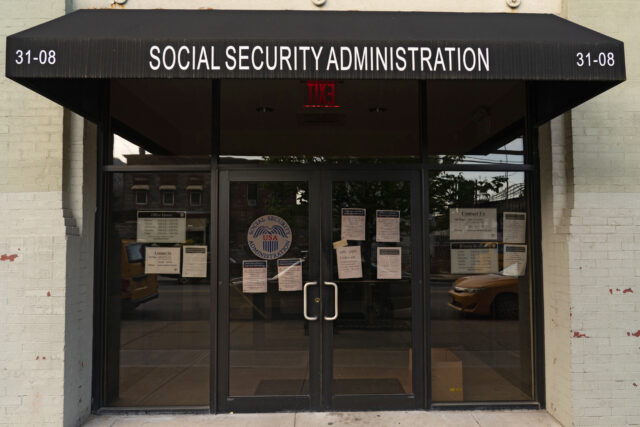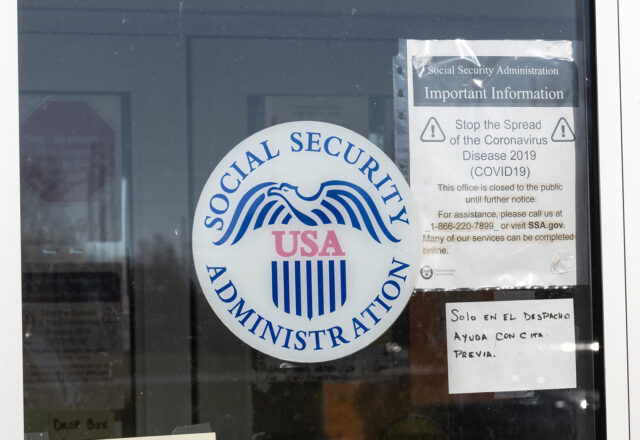
Boomers Facing Tough Financial Decisions
For baby boomers who thought they were on the path to retirement, the road is shifting beneath their feet.
Danielle Harrison, a financial planner in Columbia, Missouri, sees a raft of problems stemming from the COVID-19-induced economic slowdown.
Many older workers getting close to retirement age are taking big hits to nest eggs that were already too small. Some boomers who lacked pensions and were behind on saving tried in recent years to make up for lost time with a riskier portfolio in the rising stock market – now they’re experiencing the downside of that risk. Others are scrambling to pay expenses or maintain debt payments as their income drops, altering their financial security now and changing their calculations for the future.
“It’s really going to hurt people,” said Harris, who believes that some baby boomers who had planned to retire in the near-term may be rethinking those plans.
And she’s talking about the boomers who still have jobs. The layoffs have already begun and will continue. Economists estimate GDP will contract in the second quarter at an unprecedented 10 percent to 24 percent annual rate.
Evan Beach, a financial planner in Alexandria, Virginia, predicted that “People are going to get fired, and the people who get fired are not the 25-year-olds making $60,000. They’re going to be the 50- and 60-year-olds making $120,000.”
The economic stimulus package Congress passed last week could help, because it was designed to mitigate some job losses by extending loans to businesses that preserve their payrolls. It will do nothing to repair investment portfolios, however.
Beach and other financial advisers worry that panic decisions in this tumultuous time will only make things worse for boomers who, now more than ever, need to preserve their retirement resources.
Just as they did in the years after the 2008 financial market crash, some unemployed boomers will pound the pavement for a job and will scrape by – through odd jobs, short-term contracts, and unemployment benefits – rather than be forced into a premature retirement.
But Beach anticipates that many of them may have no other option than to claim their Social Security – the program’s earliest claiming age is 62. The problem with starting Social Security now is that it would permanently lock in a smaller monthly check. This goes against a central tenet of retirement planning, which is that many people would be better off delaying the date they sign up to increase a retirement benefit they will need for the rest of their lives.
Beach conceded, however, that claiming the smaller benefit now is not irrational for a couple with one laid-off spouse, only $2,000 in income, and $3,000 in expenses. If the laid-off spouse can start getting $1,000 from Social Security, he said, “that’s not irrational. That’s desperate.”
A second group of laid-off boomers face a different decision. They have retirement savings but still may be tempted to claim their Social Security right away. Instead, they should consider using some of their savings to cover expenses so they can delay claiming, which would increase that inflation-adjusted government income.
And there’s a right way to do this. “Take the income from a part of the portfolio which hasn’t been as badly hit, like government bonds,” Beach said. “Give your stocks some time to rebound and live off of the bonds.”
Tom Balcom, a financial planner near Fort Lauderdale, Florida, worries about a panic investment decision: getting out of stocks. With the S&P 500 stock index down nearly 40 percent in the last month, now is not the time to sell.
“I don’t care what age you are. If people panic and transfer their stock holdings into Treasuries yielding 1 percent,” Balcom said, they will “never recoup the losses” from the market drop.
But the reality, he said, is that people “who don’t have an emergency fund to last six months [will] make irrational and emotional decisions.”
Read more blog posts in our ongoing coverage of COVID-19.
Squared Away writer Kim Blanton invites you to follow us on Twitter @SquaredAwayBC. To stay current on our blog, please join our free email list. You’ll receive just one email each week – with links to the two new posts for that week – when you sign up here. This blog is supported by the Center for Retirement Research at Boston College.
Comments are closed.







The lack of risk-free return options really messes with retirement planning. In addition to leading people to assume more investment risk than may be appropriate for their age, it also complicates the decision to delay a Social Security benefit. Ideally, the savings used to do that are set aside into something nonvolatile to protect from sequence of returns risk, but that’s a lot of money to be earning nothing on.
If we think that the decline in stock prices reflects an increase in the risk premium, then selling stocks now to finance current consumption is very expensive in terms of future consumption forgone. So skip the cruise and stay home and watch Netflix. The upside is that there isn’t actually too much to spend money on right now, given that much of retailing, hospitality, and travel is shut down.
We’ve been earning zero on our savings for years, because every asset has been vastly overpriced. The decision was to have the federal government go deep into debt poorer later-born generations will have to repay to keep asset prices inflated.
Imagine the impact on young savers — and those under 40 are more likely to save than prior generations had at the same age. They lose — guaranteed low or future returns — and those older and/or richer who sell those assets win. Including homes.
This economy was unsustainable. If the risk-free rate were to rise to something more typical, the economy would collapse, the federal government would be broke, and Social Security and Medicare would be gutted more than they will be anyway. That’s what the Fed found out in 2018 when it tried to normalize interest rates. But if the risk-free rate doesn’t rise, then state and local governments will collapse more than they were going to anyway.
https://larrylittlefield.wordpress.com/2020/03/17/federal-reserve-z1-data-for-2019-the-debt-driven-party-had-to-end-eventually-coronavirus-or-no-coronavirus/
Generation Greed cashed in the future of the U.S. for 40 years. The future was coming — the virus accelerated it. Read to the end of that post, and you’ll see a consensus right across the political spectrum, in every mainstream news source.
Interesting that none of the planners interviewed suggested tapping what for many Boomers is their largest asset – housing wealth/home equity.
Whether as a bridge to larger social security benefits or a “buffer asset” to mitigate the effect of sequence of returns risk on an investment portfolio, this asset needs to be a part of the conversation.
And when having that conversation, Boomers need to ask their planners to compare traditional with reverse mortgage borrowing. Most planners can’t, and pressure from their clients will force them to address this gap in their skill set.
Notice how our Federal Government talks about hardship during a financial crisis and a trillion dollar yearly spending deficit by them only growing but one does not ever hear of LAYOFFS at the Federal government or freezing hiring or even wage cuts. The fantasy island never ends
Health insurance is also a huge issue if you are laid off and too young for Medicare. Trump has refused to allow off-cycle entry into the marketplace for ACA-subsidized policies but if you are lucky, your state may allow you to do this.
Question from a novice: Since the rebound in equities is expected to be more rapid and overall returns are better in stocks, would it make sense to take an stronger than usual equity leaning asset allocation? If one was at 50-50 before, would a 60-40 stock now be wise?
I have never talked to a financial planner that ever recommended using a reverse mortgage as a possible option for people who are at least 62 and own their house outright. Only 2% of eligible seniors utilize a reverse mortgage. Is that something that financial planners are taught to not recommend?
As a 25-year mortgage industry veteran and reverse mortgage loan originator who has been working almost exclusively with the clients of financial planner for 10+ years, I would say the short answer to your question is “yes”. The longer answer would exceed the space available.
Thanks to the research and writings of financial-industry thought leaders like Harold Evensky, Wade Pfau, Barry Sacks and Tom Davison coupled with the demands being placed by the longevity blessing/curse, the tide is slowly turning and compliance departments are SLOWLY opening the doors to these discussions between advisor and client.
If you firmly believe that the market will have an additional 30% sell off because we are not slowing the spread as much as we should by now and our medical supplies are drastically insufficient, does it make sense to go to cash now (15% decrease in valuation as of now), wait until we hit our peak, see a decline in infections, and then re-imagine your portfolio. Is it all going to come back in one day?
In my opinion, I think it’s important to separate the emotions from investing. With the spread of the virus, it is very concerning, no doubt. How the market reacts to news, I can’t control. However, I can control how and when I invest, so I tend to focus on that.
Does an impending recession make it riskier to continue delaying Social Security claiming? Will it accelerate the reduction of benefits for higher income retirees previously forecast for 2030 to 2034?